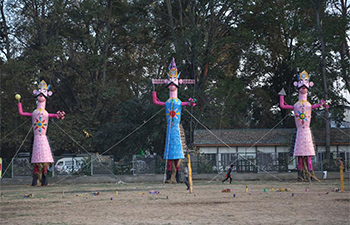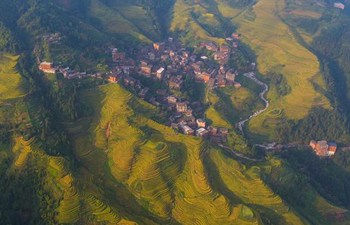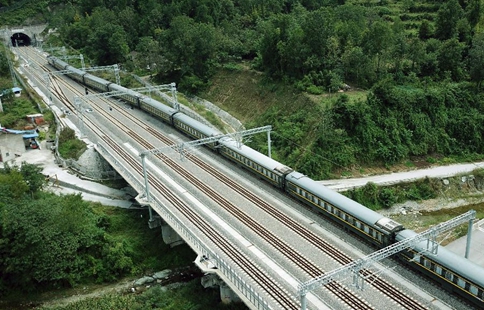QINGDAO, Sept. 28 (Xinhua) -- A rice crop experiment on saline soil has beaten expectations, laying the foundation for future commercialization, according to Chinese scientists Thursday.
Four types of rice registered an estimated output of between 6.48 to 9.3 tonnes per hectare, at Qingdao Saline-Alkali Tolerant Rice Research and Development Center.
In spring, more than 200 types of rice were planted in the coastal city of Qingdao in eastern China's Shandong Province. Scientists later used diluted sea water in the soil to test which types could survive and prosper in saline environments.
Seawater from the nearby Yellow Sea was pumped into the center, diluted to a salinity of around 0.3 percent and channeled into paddy fields.
Scientists later increased salinity to around 0.6 percent, putting the rice in a tougher environment
Researchers had expected an output of around 4.5 tonnes per hectare, said Wang Kexiang, division chief of the technology department of the center.
"The test results were way over our expectations," said Liu Shiping, an agriculture professor with Yangzhou University, who is reviewing the results.
Certain types of wild rice, which have not yet been manipulated by human technology, can survive salinity, but they typically have a low yield of between 1.125 to 2.25 tonnes per hectare.
Yuan Longping, a renowned scientist who led the experiment, said that he was very satisfied with the results.
Yuan, known as China's "Father of Hybrid Rice," helped found the Qingdao center in October 2016.
Rice is China's staple food, and the mission of the center is to develop commercially viable rice tolerant of saline and alkali soil.

















